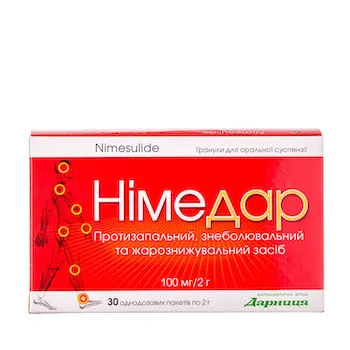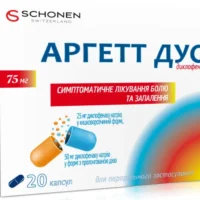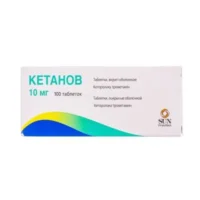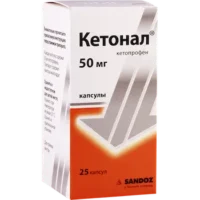Description
Nimedar (Nimesulide) Granules 100 mg. 2 g. Sachets №30
Ingredients:
- Each sachet contains 100 mg of nimesulide.
Dosage:
- The recommended dosage is one sachet (100 mg) twice daily.
Indications:
- Nimedar granules are indicated for the relief of pain and inflammation in conditions such as osteoarthritis, rheumatoid arthritis, and acute musculoskeletal disorders.
Contraindications:
- Do not use Nimedar granules if you have a history of allergic reactions to nimesulide or other NSAIDs.
- It is not recommended for use in patients with a history of gastrointestinal bleeding or ulcers.
Directions:
- Dissolve the contents of one sachet in a glass of water and drink immediately after a meal.
- Do not exceed the recommended dosage.
Scientific Evidence:
- Nimesulide, the active ingredient in Nimedar granules, inhibits the production of prostaglandins, providing anti-inflammatory effects.
- Clinical trials have shown the effectiveness of nimesulide in managing pain and inflammation.
Additional Information:
- Nimedar granules offer a convenient and effective way to manage pain and inflammation.
- Nimesulide selectively inhibits COX-2 enzyme, reducing inflammation and pain with potentially lower gastrointestinal side effects.
- Comparative studies suggest advantages in gastrointestinal tolerability and cardiovascular safety compared to traditional NSAIDs.





